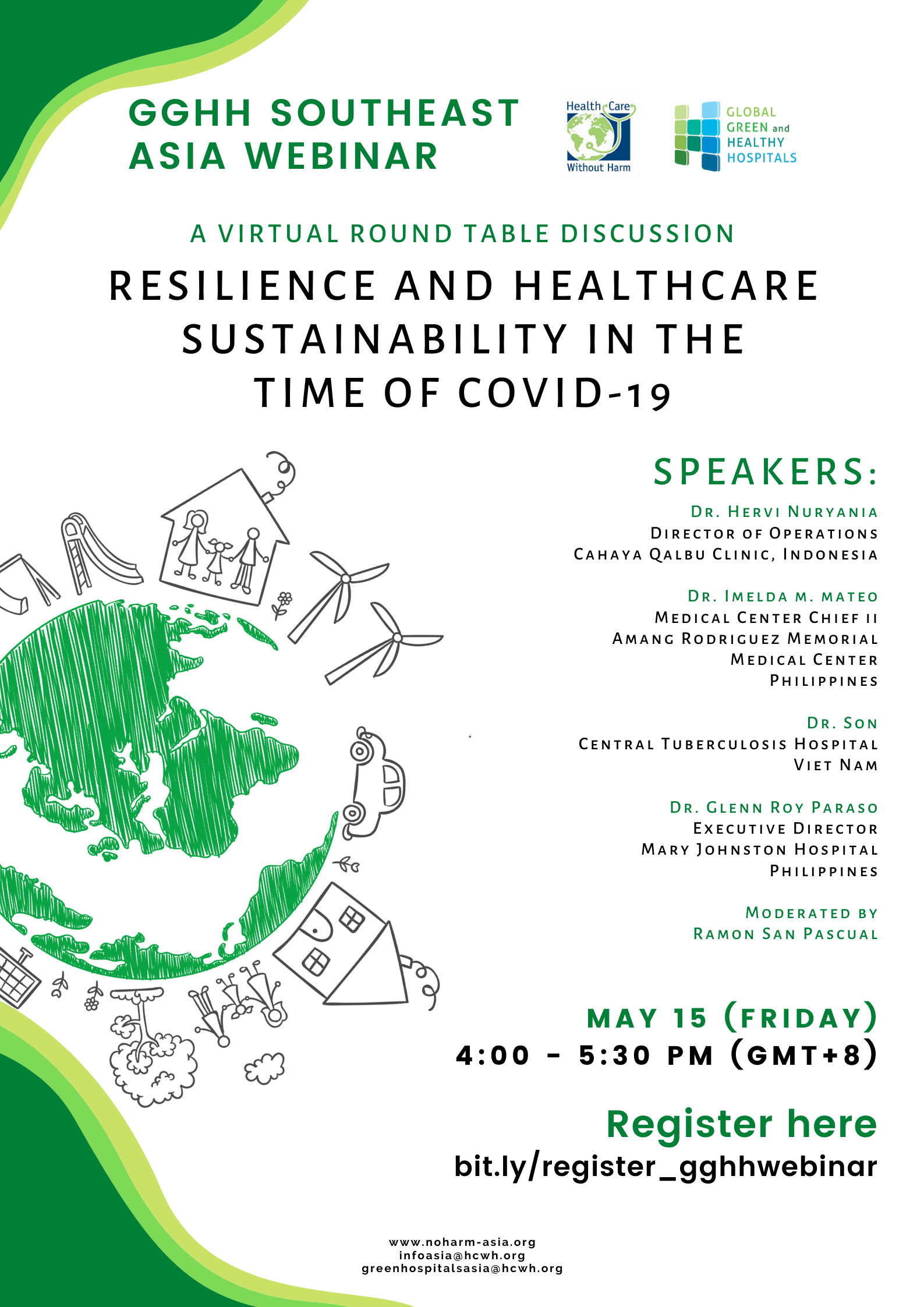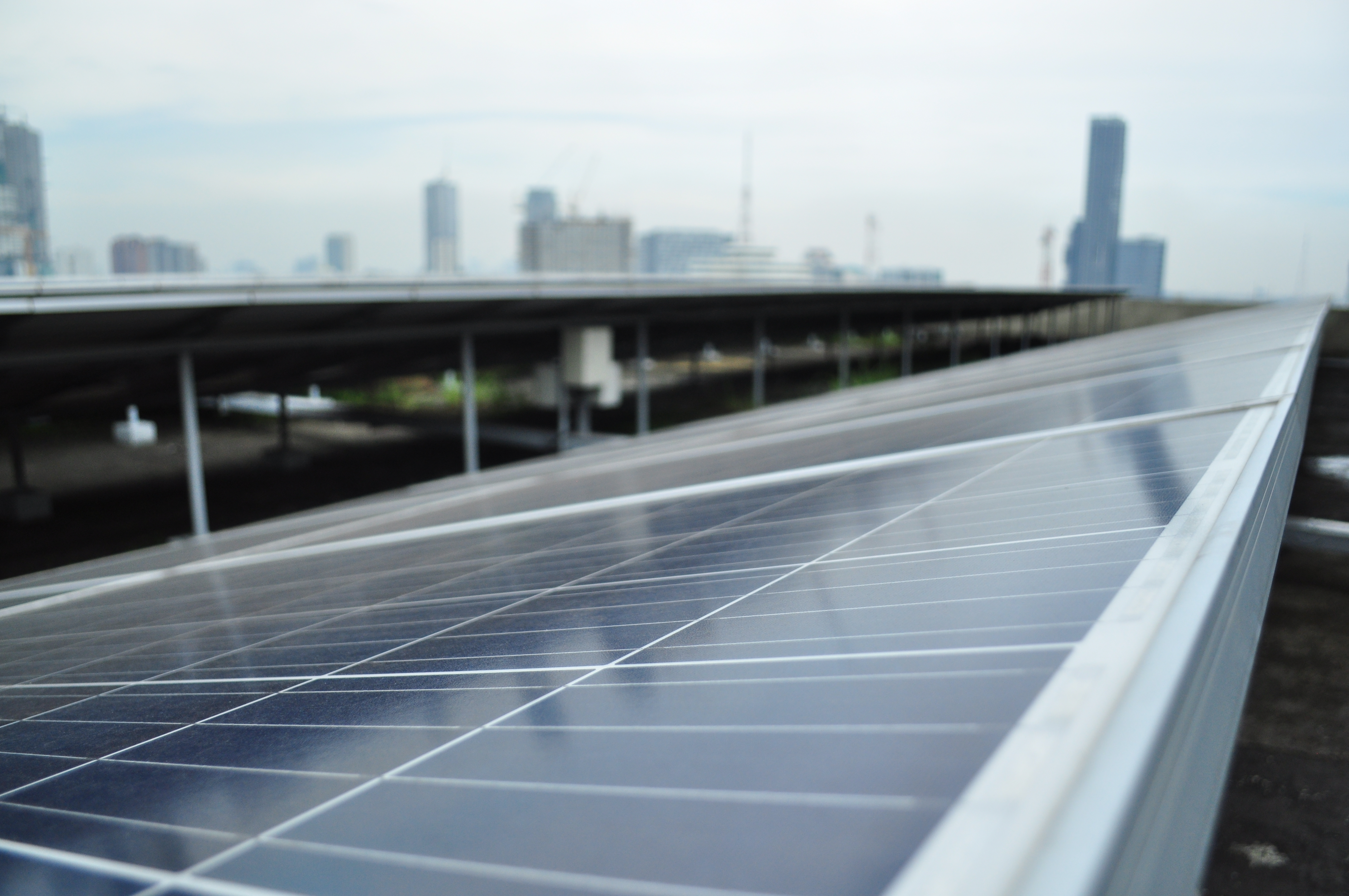GGHH SE Asia | Resilience and Healthcare Sustainability during the COVID-19 Pandemic
The COVID-19 global pandemic not only posed threats to human health but also caused many challenges in the health care system globally. It amplified issues that were not recognized or given attention in a normal situation in terms of capacities, health finances, information, human resource, sustainability and many others. The health care system is being burdened with lack of capacities to deal with the rising number of COVID-19 patients without sacrificing the health and safety of other normal patients. Safety issues especially for health care workers is not only limited to contamination and lack of PPEs but also includes lack of health insurance and benefits, proper transportation and accommodations, protection from discrimination, as well as mental stability. Knowledge about the virus is very limited and every moment a new discovery unfolds that shakes the protocols in the system making it harder for the medical practitioners to deal with it. Information disseminated to the public is not always backed by scientific facts and causes restlessness that adds to the burden of the health professionals. Aside from all this, there are environmental and sustainability issues that also need to be addressed such as wastes from usage of single-use PPEs and excess use of disinfecting chemicals.
In an aim to delve into the current issues being  faced by the medical front liners in battling COVID-19 pandemic and come up with practical and humane solutions to pursue resilient and sustainable health care systems in the process, the Global Green and Healthy Hospitals (GGHH) Network in Southeast Asia launched a webinar to pilot a series of virtual round table discussions on the topic.
faced by the medical front liners in battling COVID-19 pandemic and come up with practical and humane solutions to pursue resilient and sustainable health care systems in the process, the Global Green and Healthy Hospitals (GGHH) Network in Southeast Asia launched a webinar to pilot a series of virtual round table discussions on the topic.
Attended by atleast 68 participants from Malaysia, Vietnam, Philippines, Indonesia, Taiwan, and even Australia, the webinar featured healthcare champions like Dr. Glenn Roy Paraso of the Mary Johnston Hospital in the Philippines who discussed hospital capacities and finances and shared that, “it is very important to us to have an assessment and Analysis because nobody expected this pandemic. It just so happened that we were able to do our strategic planning in January and we considered the possibility of disasters in our strategic planning so that was good but not at this big change that we are experiencing right now". He was followed by Dr. Hervi Nuryania of the CahayaQalbu clinic in Indonesia sharing their experiences in terms of environmental accountability and called for action in her final statement saying that the “healthcare sector should not cause any adverse impacts on human health or the environment. Let us start our step to reduce our environmental footprint, because even a small action is valuable". Dr. Nguyen Hoang Son of the National Lung Hospital in Vietnam then delved into the importance of effective information and communication which highlighted the country's successful communication strategies in confronting the pandemic. Dr. Son then reminded the audience that, “the number of COVID-19 positive in Vietnam do not increase now, all doubted patients have been found negative with the COVID-19, our healthcare workers and patients are safe but we’re always alert with the risk of new cases". The presentations were wrapped up with Dr. Imelda Mateo of government hospital Amang Rodriguez Memorial Medical Center in the Philippines discussion on Health Workers' Protection and Benefits in which she concluded that, “in any agency or institution, it’s the workforce which is the strongest so you have to motivate, support and understand them by attending to their basic needs, safety and health needs including emotional, psychological and spiritual needs".

Towards the end of the virtual session, some of the participants expressed the need for green healthcare systems to better cope with pandemic outbreaks and even climate-induced disasters in terms of preparedness and sustainability.
To view the webinar recording, click here
